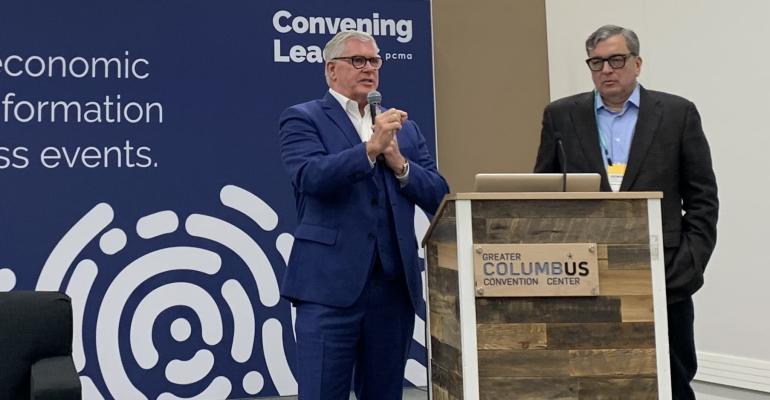With significant guidance from industry association Destinations International, the insurance and risk-management firm Anderson Benson has rolled out coverage for event disruption and cancellation that allows host organizations to put together a policy specific to their needs.
An insurer of many national and international concert tours, Anderson Benson presented its expanded business-event-protection offerings during the Professional Convention Management Association’s Convening Leaders conference in Columbus, Ohio, this week. The product will be available to any event host working with a convention and visitors bureau that is a member of Destinations International.
The product includes coverage to protect budgeted costs and expenses as well as revenue should an event be cancelled, abandoned, or disrupted due to reasons beyond the control of the host group or the destination management organization.
George Anderson, president of Anderson Benson, said that the biggest difference between the new product and prior versions is that more potential disruptive situations are available for coverage. These include civil unrest, national mourning, travel bans and boycotts, ransomware attacks on computer networks, and others, in addition to weather events, acts of terrorism, and other traditionally covered disruptors.
However, “you don’t have to pay for situations you don’t think are worth covering,” he noted. “Give us the circumstances you want to cover and a loss number in terms of costs or projected revenues that you are looking to protect. From that, we will give you a premium figure that you can present to your CFO for a decision.”
While Anderson said that communicable-disease coverage was widely available and inexpensive prior to the Covid pandemic, that feature “is not really back open yet, though [the situation] should get better later in the year.” In addition, “no insurance product covers legislative actions” such as new laws being passed in a destination that conflict with the mission or values of a meeting host, “though it is presently being discussed with the policy underwriters.”





